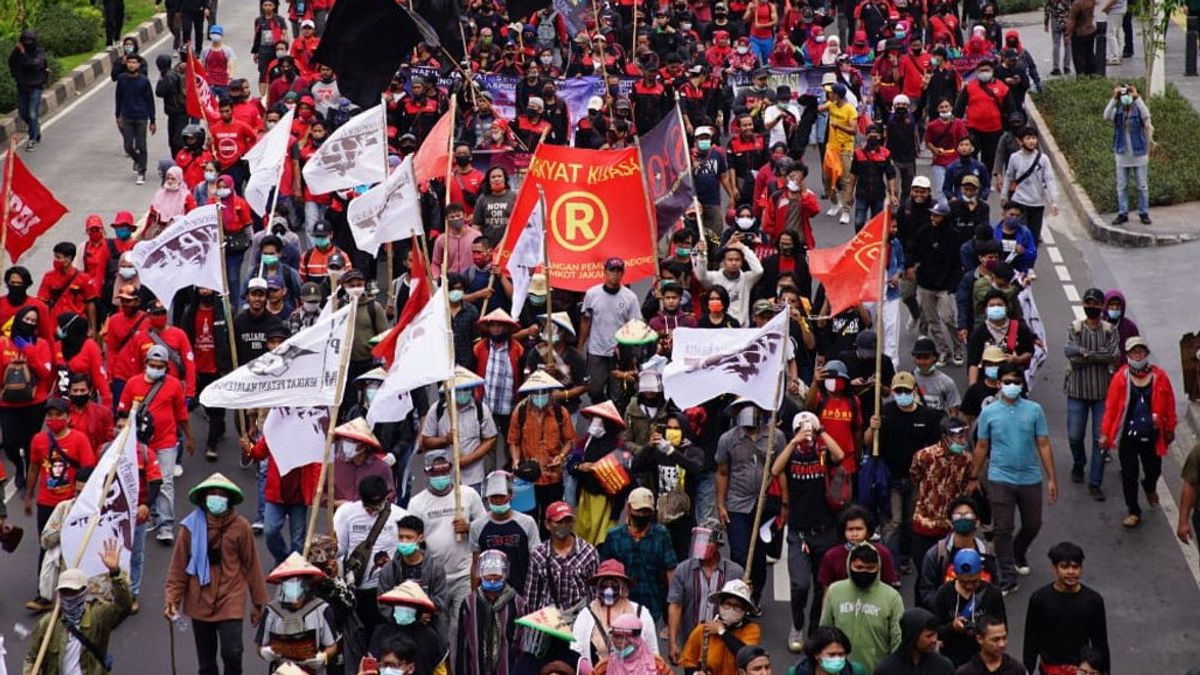JAKARTA - President of the Association of Indonesian Workers Unions (Indonesian Aspects) Mirah Sumirat said that the reform of the national wage system as stated in the derivative regulations of the Job Creation Law is very likely to eliminate the reference for salary increases every year.
According to him, the calculation of the household consumption aspect which is used as one of the considerations for the increase in wages can be a stumbling block in increasing workers' income each year. This is because if an area is classified as a low-economic region, then it is certain that the level of household consumption is also low.
"Most likely yes (wages do not increase every year). For example, if an area is not an industrial area or a tourism center, what is the basis for the increase? The local regional head can decide not to raise wages, ”he said on Tuesday, February 23, as reported by CNBC Indonesia.
For information, the derivative rules of the Job Creation Law, namely Government Regulation Number 36 of 2021 concerning Wages, in lieu of Government Regulation No.
Apart from that, the calculation of the rate of labor absorption and the median wage is also included, while the district / city minimum wage includes regional economic growth or inflation in the regency / city concerned.
"Data on growth, economy, inflation, purchasing power parity, labor absorption rate, and median wages come from the authorized institution in the field of statistics," quoted from Article 25.
This means, the fate of the increase in wages for workers depends on the report compiled from the Central Statistics Agency (BPS), as the main reference for regional heads in determining the figures for the following year.
However, the government still regulates the upper and lower limits of the minimum wage in the region concerned. This is stated in PP 36/2021.
Furthermore, in the latest post-omnibus law legislation, it also explains the aspects of consideration of the average per capita consumption, the average number of household members, and the average number of household members working in each household.
If the provincial minimum wage for the current year is higher than the upper limit of the UMP, the governor is obliged to set the UMP for the following year the same as the UMP for the current year.
The difference with the old regulation, namely PP 78 of 2015 concerning wages, there is a need for a decent life and by paying attention to productivity and economic growth.
"The need for decent living as referred to in paragraph (1) is the standard requirement for a single Worker / Laborer to be able to live physically properly for the needs of 1 (one) month," writes Article 43 paragraph (2).
Meanwhile in the latest PP, the need for a decent living (KHL) is not mentioned or given consideration in determining the minimum wage. In stipulation, the governor will determine the increase in wages.
The English, Chinese, Japanese, Arabic, and French versions are automatically generated by the AI. So there may still be inaccuracies in translating, please always see Indonesian as our main language. (system supported by DigitalSiber.id)












